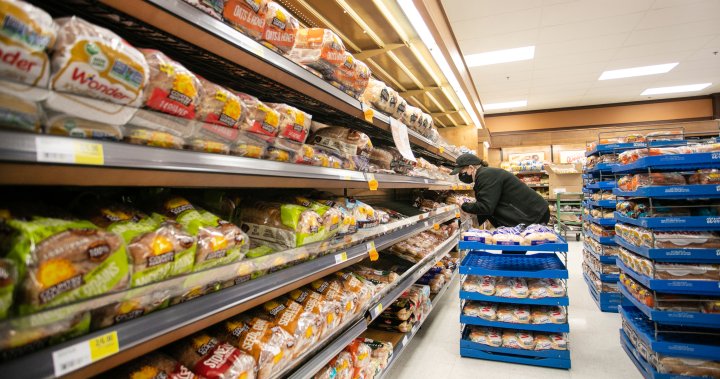The latest report from Statistics Canada reveals that while overall inflation has eased, food prices are continuing to rise, causing frustration for Canadian consumers. The Consumer Price Index for June showed an annual inflation rate of 2.8%, with food prices increasing by 9.1% year-over-year. Sylvain Charlebois, director of the Agri-Food Analytics Lab at Dalhousie University, explains that the gap between general inflation and rising food prices is a major concern for shoppers. The report highlights meat (up 6.9%), bakery products (up 12.9%), and dairy products (up 7.4%) as the main contributors to food inflation. Additionally, a 30% increase in grape prices led to a 10.7% rise in the price of fresh fruit.
Charlebois attributes the high prices of fresh foods to extreme weather events, such as droughts in Canada and the US, which have impacted cow herds and driven up beef prices. He predicts that this pressure on meat prices will continue. He also states that the impacts of climate change have been consistent factors in the prices of fresh foods over the past 15 years.
Furthermore, the collapse of the Black Sea grain deal, which facilitated the flow of wheat products from Ukraine and Russia to international markets, could have a significant impact on food prices globally. While Canada is a major wheat exporter, commodity prices are set internationally, so any disruption to supply can drive up prices worldwide.
Matias Margulis, associate professor of food systems at the University of British Columbia, explains that the collapse of the trade deal is a concern for global food security and could lead to higher food prices in North America. However, the final impact will depend on market reactions and how other countries establish alternative supply chains.
Charlebois remains hopeful that there will be some relief in food prices this year, despite the persistence of food inflation. He points out that grocery price inflation declined slightly in June, although he cautions that the implementation of new clean fuel regulations and the carbon tax in July could reverse this trend. The Bank of Canada has stated that businesses need to normalize pricing decisions to help cool inflation. Finance Minister Chrystia Freeland has urged retailers to take responsibility and lower food prices, adding that the federal “grocery rebate” is one way the government is offering relief to consumers.
The Retail Council of Canada has responded, stating that grocers are not profiting from high food prices and are facing significant cost increases from suppliers. They emphasize that costs in the supply chain are the reason for high food prices.
Overall, the food inflation issue in Canada persists, with severe weather and geopolitical disruptions expected to continue impacting food prices. However, there is hope for some relief in the future, provided that businesses normalize pricing decisions and retailers take responsible approaches to pricing.
Denial of responsibility! VigourTimes is an automatic aggregator of Global media. In each content, the hyperlink to the primary source is specified. All trademarks belong to their rightful owners, and all materials to their authors. For any complaint, please reach us at – [email protected]. We will take necessary action within 24 hours.


